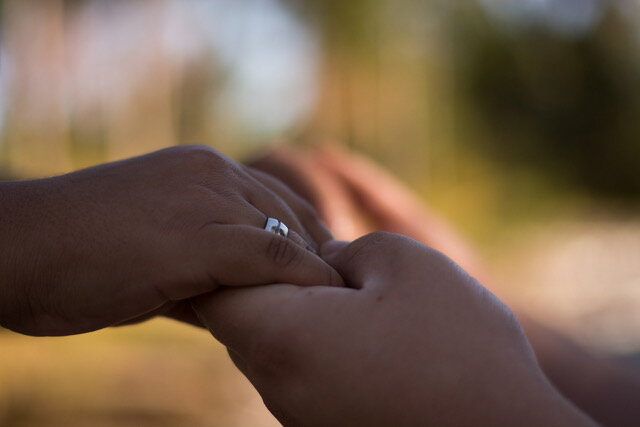
Couples seek marriage counseling (a.k.a., couples therapy, couples counseling) for many reasons. Strained communication, unresolved conflict, breaches in trust, and dispassionate sex lives are just a sampling. Whatever the motivation, couples therapy is a courageous choice; one that could be the most eye-opening and life-changing journey yet.
But what about the couple who identifies strongly with their Christian faith and believes they should find a therapist who will honor their hard-won and heartfelt biblical worldview? Significant concerns and questions can crowd the minds of these discerning couples as they seek to find the best therapist for the job.
Pairings of both the likely and the unlikely
Some things go together. Pen and paper, black and white, and rock and roll make my personal list of favorites. Classic food pairings like peanut butter and jelly, macaroni and cheese, and bread with butter also make the cut.
And, then, there’s the ever-classic, European-inspired marriage of wine and cheese.
Few would argue the effortless relationship between cheese and wine. By complementing one another’s feel, taste, and lingering sensation, this pair’s brilliance is hard to deny. Yet, consider the sourcing and processing of these delicacies, how vastly unique each food’s path to ultimate mastery looks.
Things that complement one another often hold distinct origins, both valuable in their own rite and perhaps even better together.
Now consider this analogy in terms of spirituality and psychology. Complimentary yet distinct, both seek to uncover and cultivate the true Self, the unencumbered essence of who we are, and who we are meant to be both individually and in relationship with others.
Spirituality, from a strictly Christian perspective, realizes the individual’s brokenness, the pull of sin, and need for grace that only comes from a benevolent and merciful Source. Christians believe they are never enough without this grace, which is the gift of a life unburdened by spiritual darkness and death. To realize the true Self, the Christian must accept their need for something greater (God’s salvation) in order to break free and live into their potential, both now and for eternity.
Within a clinical framework, psychology honors the individual’s path to freedom by accessing the Self. This happens by inviting new ways of thinking and behaving, utilizing reflective and insightful exploration, often in the care of a counselor who can gently guide the process. In countless ways, the gift of therapy comes alive as the individual’s story is pieced together into a cohesive narrative, perhaps for the first time. The liberation and relief that often ensue can be the starting point for authentic transformation.

While it’s true that the cornerstone of each is distinct, and the idea of such a culmination may be novel, the end result could mean that together, spirituality and psychology fuse to make an award-winning combination. An unlikely pairing that, for the struggling relationship, is worth contemplating.
Christian couples counseling in a nutshell
Undoubtedly, the crossover of psychology and spirituality is a rather new concept. For hundreds of years, Christians have sought the counsel of a pastor or church leader when undergoing difficult issues, including marital problems. While meeting with a pastor could be constructive and insightful, it might benefit the couple to consider this spiritual guidance as supplementary to therapy rather than as a replacement for it.
Individuals licensed by a state to practice psychotherapy become qualified through a Masters-level education, passing an arduous exam, and racking up thousands of hours of clinical practice in hands-on therapy. While a few branches of therapy are considered to be “the majors,” many other effective therapeutic perspectives are utilized, including Christian, biblical, and faith-based counseling.
Therapists who practice Christian couples counseling have likely received their training from a seminary or Christian university with an emphasis on faith and spirituality in clinical practice. The coursework for a Marriage and Family Therapist, for instance, might look almost identical to someone trained in a secular university. The exception, of course, is that the individual studying in a Chrisitian setting will have one or two classes specific to spiritual formation, counseling from a biblical perspective, or faith-based counseling, for instance.
Three essentials to choosing a qualified couples counselor:
1. Look for a therapist who prioritizes Belonging and Acceptance
Significant research affirms the therapeutic alliance – the relationship between client and therapist – is one of the most compelling predictors of a good therapy experience. In fact, the client’s sense of safety and being known, seen, and accepted are the number one tasks of every skillful therapist.
Remember the Cheers effect, prompted by the iconic 80s t.v. series, where “everybody knows your name”? The show’s assertion of everyone’s need for belonging generated a devoted following of the more-than-decade-long sitcom, revealing an innate human need in each of us. Without this connection, a felt-sense of belonging, clients understandably don’t stick around.
2. Find a counselor with Specialized training and Practice
You and I would never dream of allowing a primary care physician to perform our corrective eye surgery. Rather, we would seek a reputable eye surgeon who had successfully completed many surgeries before.
Likewise, couples seeking marital help of varying degrees (whether on the verge of separation or looking for a stabilizing connection) must prioritize the search for an experienced couples therapist with countless hours “eating, sleeping, and breathing” the stuff of relationship sages. Couples counseling, after all, is a particular niche in the field of therapy that encompasses its own set of therapy models designed specifically for relationships.
3. Only work with a Curious therapist
Despite all of the afore-mentioned, indispensable training, curiosity must actualize in order for good therapy to take effect.
When I am confronted with a couple’s story so radically different than my own, my first order of business is to get into their shoes any way I can. This way, I can not only hold some clout with the client, but more importantly, the client can begin to trust that I’ve got their back.
What makes the connection magical is when the therapist becomes and remains really curious about the life and story of the clients in front of them. And, in that curiosity, chooses to connect again and again with honor and acceptance of the couples’ life in the here and now.
Good therapists know their job is to meet clients where they are and to make unbiased space for the client’s questions, concerns, and longings. A skillful counselor understands the added complexity of working with couples and endeavors to support that relationship in its uniqueness.
For the Christian couple, discerning who might be the best person for the job rests in knowing that qualified couples therapists stay curious, know their specialized work inside and out, and value making you feel understood and accepted. A well-trained therapist creates an authentic connection with the couple and, more importantly, assists the couple as they learn to connect more deeply with one another.
Finding the perfect match in a couples therapist might not be possible. Some couples will have to choose between a counselor who shares their faith and a counselor who specializes in the field of couples therapy. In the end, the above-mentioned essentials of good therapy are the critical elements for every client to look for, including the Christian couple seeking solid support in their quest for relational healing, growth, and long-lasting love.
